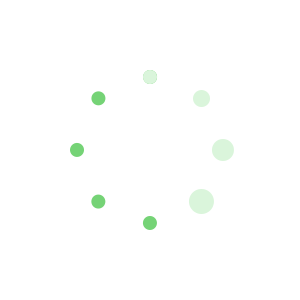中考英语一般现在时态
1、一般现在时态的概念
(1)、表示现在的状态(谓语多用系动词be)
(2)、表示经常或习惯性的动作(谓语是do类动词)
(3)、表示主语具备的性格和能力(谓语多是 speak like enjoy)
2、be (am is are)“是” ,英语中最重要的一个系动词
do类动词,又叫实义动词。例如:have (有),play(玩,打 )等。
3、一般现在时态的动词形式
一般现在时态规定:系动词be用现在式am is are 三个形式。
do 类动词用原型或第三人称单数形式。
“原形动词 + s / es”构成“第三人称单数形式”,与单数名词变复数
名词方法一样。
(1)、一般情况,动词后直接加s (清辅音后读 / s /, 浊辅音后度 / z /)
例如:brings 带来 calls 打电话 meets 遇见 needs 需要
(2)、以字母e结尾的动词,直接加s (读 / z /) 例如:
Likes 喜欢 takes 带走
(3)、以字母s x ch sh o结尾的动词,加es ( 读 / z / 或 / Iz/ )
例如: does 做 goes 走,去 watches 观看
(4)、以“辅音字母 + y”结尾的名词,变y为i,加es (读 / z /)
例如: study → studies 学习
中考英语一般现在时的用法
1、表示经常性活习惯性的动作或存在的状态
I often go to school by bike.
2、表示客观事实或普遍真理
The earth goes around the sun.
3、一般现在时表将来
a. 用在状语从句中(如 时间、条件状语从句等),用一般现在时表示将来。
If it rains tomorrow, we won’t go to the park. (if引导的条件状语从句,主将从现)
When I grow up, I will go to America.
b. 下列动词:come, go ,arrive, leave, start, begin, return的一般现在时表将来。主要用来表示时间上已经安排好的事情,如:
The train leaves at six tomorrow morning.
4、在某些以here, there 开头的句子(倒装句)中用一般现在时表示正在发生的动作
Here comes the bus. = The bus is coming.
中考英语一般现在时经常连用的动词
表示按规定、计划或时间表将要发生的事:
He starts next week.
他下个星期出发。
We leave very soon.
我们很快就离开。
The train starts at 10 o'clock in the morning.
火车将在早上10点开出。
这类用法限于表示“移动”的动词:go去,come来,leave离开,start出发,begin开始,arrive到达,take off起飞,等。
有些动词,即使表示现在的动作也不能用现在进行时,也只能用一般现在时:
To tell you the truth,I hate to do it.
说实话,我讨厌那样做。
I hope the weather would be fine.
我希望天气会晴朗。
I am looking into the room,and I see a strange man in it.
我朝房间里看,看到了房间里一个陌生的男子。
这类不能用于现在进行时表示正在发生动作的动词有:
1. 表示心理状态的动词
know知道,realize意识到,think (that)认为,suppose (that)料想,doubt怀疑,forget忘记,remember记得,understand明白,regard看待,love爱,like喜欢,prefer偏好,hate讨厌,hope希望,want想要,need需要,wish愿望,等。
2. 表示感觉的动词
see看见,hear听见,find发现,notice注意到,feel觉得等。
3. 表示状态的动词
be是,have有,belong属于,own拥有,possess拥有,suit适合,fit适合,contain包含,depend依靠,smell有……的气味,taste有……的味道,seem显得,look显得,appear看来,turn out变成,等。
中考英语一般现在时动词变化规则
一般现在时动词变化规则:
只有主语在第三人称单数时用动词的"三单形式",
其他人称用动词原形。
动词三单形式的变化规则
1.规则变化:
(1)多数直接在动词词尾加-s.
play - plays like - likes
ask---asks work---works get---gets call---calls
(2)以字母s, x, ch, sh或o结尾的动词,在词尾直接加-es.
watch---watches wish---wishes do---does go---goes
(3)以"辅音字母加 - y"结尾的动词,要先变y为i再加-es.
try---tries study---studies cry---cries fly---flies
2.不规则变化:be---- is have----has
中考英语一般现在时代替将来时
时间状语从句,条件句中,从句用一般现在时代替将来时
When, while, before, after, till, once, as soon as, so long as, by the time, if, in case (that), unless, even if, whether, the moment, the minute, the day, the year, immediately
He is going to visit her aunt the day he arrives in Beijing. 他一到北京,就去看他姨妈。
典型例题
(1)He said he________me a present unless I_______ in doing the experiment.
A. had not given; had not succeeded B. would not give; succeed
C. will not give; succeed D. would not give; will succeed.
答案B. 在时间,条件或让步主语从句中一般不用将来时。本题有He said,故为过去式。主句用将来时,故选B. 此处用一般过去式代替了过去将来时。
(2) 表示现在已安排好的未来事项,行程等活动。
The museum opens at ten tomorrow. 博物馆明天10点开门。(实际上每天如此)





